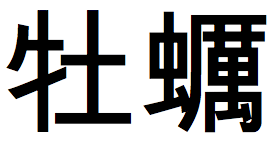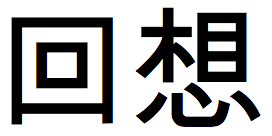
I can’t remember when I started noticing ド on TV, but whenever it was, the meaning was quickly apparent: people on TV, mostly comedians, use it as a prefix for nouns to emphasize the extremity of that noun. To be honest, I can’t even remember which usages I saw on TV. So it’s kind of a miracle, one of those language-learning miracles, that I am able to use it at all. What’s more, I believe I use it in ways that I’ve never even heard before. ド田舎 (the fuggin boonies) is probably my favorite, as it describes my pre-Tokyo Japan experience. ド真ん中 (right in the fuggin middle) is another good one.
I took it upon myself to look into the origins of the term and found this awesome blog post. Apparently ド級 referred to the dreadnought class of English battleship. Ships built later were referred to as 超ド級. But ど was used as a prefix in the Kansai area long before 1906 when the HMS Dreadnought first entered service. At some point they must have become interchangeable.
Google is an interesting way to look into the usage patterns here. Here are some of the results:
“ドM” 1,370,000
“ド田舎” 1,350,000
“ド素人” 973,000
“ど素人” 968,000
“ドS” 905,000
“ど真ん中” 786,000
“ド迫力” 428,000
“ど根性” 367,000
“ド真ん中” 238,000
“どM” 167,000
“ド根性” 151,000
“ど田舎” 147,000
“どまんなか” 134,000
“どS” 93,500
“ドアホ” 92,500
“ど迫力” 62,000
“どアホ” 21,500
“ドバカ” 2300
“ド高い” 2270
“どバカ” 1720
“ど馬鹿” 1670
“ド馬鹿” 1530
“ど暑い” 1500
“ど熱い” 870
“ドまんなか” 691
“ド熱い” 686
“ド暑い” 668
“ドうまい” 506
“ド上手い” 317
“ド厚い” 243
“ドかっこいい” 217
“ド危ない” 144
“ド格好いい” 85
“ドかっこういい” 0
(Searches from June 23, 2009)
Immediately interesting to me is that ド田舎 gets a TON of hits. I swear I never saw that one on TV. The other interesting thing to note is that there is almost no pattern of frequency between ド and ど; in some cases ド gets more hits but in the other cases ど gets more. On TV, I’ve only ever seen the katakana version, most likely because it is more angular and therefore seems harsher/funnier than ど. The only firm correlation is that ど・ド + noun is much more common that ど・ド + adjective.
M and S refer to masochistic and sadistic, two not-necessarily-sexual personality traits that the Japanese use. Put simply, M means you are more passive, and S means you are more aggressive.
Needless to say, this is an extremely casual phrase. I’m a big fan and try to throw it out there on occasion, but I’ll probably be less likely to use it now that I know it’s Kansai-ben. Don’t want to be one of those foreigners.
That first ド wasn’t big enough. Lemme try again:







